
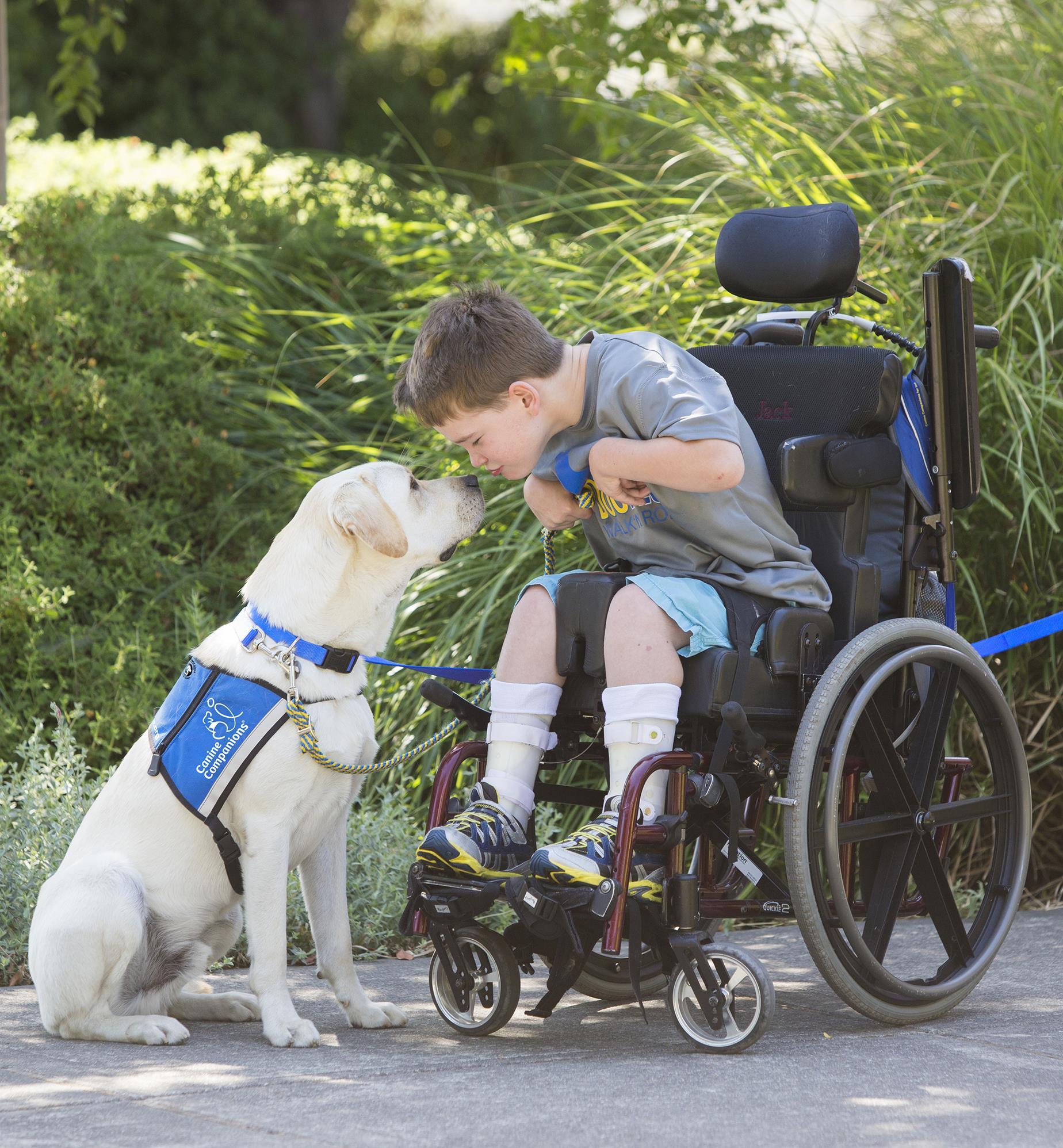
Enhancing and Securing Canine Programing at Nationwide Children’s Hospital Life Happens. Dogs Help.



Enhancing and Securing Canine Programing at Nationwide Children’s Hospital Life Happens. Dogs Help.
In the same manner that art therapy, music therapy, and other services benefit children and families, animals are highly effective. Published reports describe animals in clinical settings as a “liaison with hope.”
Rigorous scientific studies confirm what animal lovers know in their heart: pet therapy plays a demonstrable role in improving healthcare and quality of life.
“These studies demonstrate that even a short-term exposure to dogs has beneficial physiological and psychosocial effects on patients,” said the researchers. “Dogs are a great comfort. They make people happier, calmer, and feel more loved.”



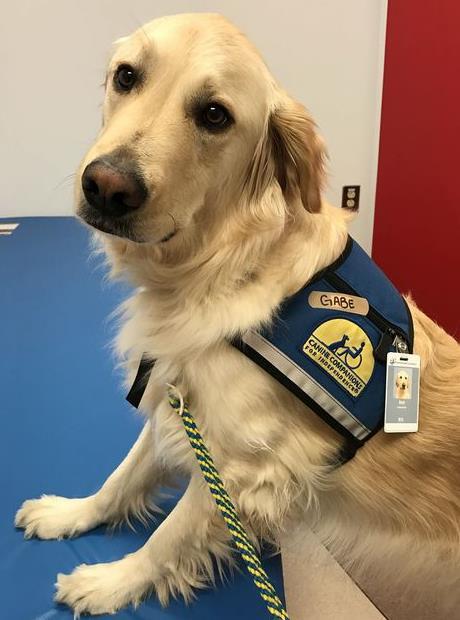
Therapy animals in pediatric cancer studies improve motivation to participate in treatment protocols, to maintain motivation over time, and to remain optimistic.
Children make fewer errors in a match-to-sample categorization task in the presence of a dog relative to a stuffed dog or human.
The presence of a dog serves as both a source of motivation and a highly salient stimulus for children, allowing them to better focus attention on the steps of treatment or rehabilitation.
The presence of an animal can significantly increase positive social behaviors among children with autism spectrum disorder.
A 12-minute visit from a therapy dog led to a 24% reduction in patient anxiety and a 17% drop in levels of the stress hormone epinephrine.
94% of parents believe that pets in pediatric healthcare institutions are beneficial to their children.
Nationwide
currently has more than 15,000 employees, and not all of them are human.
The Nationwide Children's Hospital Animal Assisted Therapy (AAT) Facility Dog program started in 2006. These specially trained dogs, under the guidance of professional clinicians, have helped countless children and adolescents gain more independence and confidence. They make challenging activities fun and provide unconditional acceptance and love to patients and families.

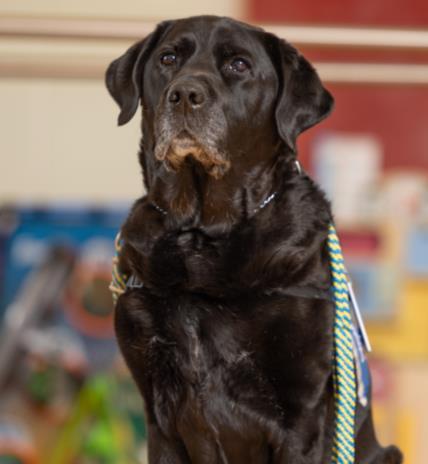




Began in 2014
Joined in 2016
Started in 2022
Our medical dogs are certified by Canine Companions for Independence, a national organization that trains service dogs. Each is cared for by a Nationwide Children’s employee who has received specialized training and incorporates the canine into job-specific responsibilities.
The facility dogs work alongside providers from a variety of disciplines following consultations with staff handlers. Our dogs help some of the most vulnerable patients in a time of crisis. Benefiting not only patients, facility dogs can also help medical teams make better diagnoses.
Beck, Hud, and Boltz have been shown to positively impact patients in departments across the hospital, including rehabilitation, behavioral health, cardiology, and gastroenterology. Along with the therapist, the facility dogs treat patients with diagnoses like eating disorders, traumatic brain injuries, heart transplants, depression, and anxiety.
The facility dogs may work alongside the following providers:
Physical therapists to help with walking longer distances
Recreation therapists to help reduce anxiety and improve empowerment in a child who struggles with mental health challenges
Trained therapists to target specific goals, while also providing comfort and companionship
Occupational therapists to encourage a patient who has had a stroke to use a weak hand to pet the dog or hold the leash
Each year, the dogs work with approximately 615 patients.
Speech pathologists to work on talking or remembering commands after a brain injury
The impact that Beck, Hud, and Boltz have had on patients has been noticed throughout Nationwide Children’s Hospital.
In one memorable story, a Nationwide Children’s patient refused to speak to her family, nurses and caregivers. She was completely mute. The pet therapy team brought Hud for a visit and she immediately spoke to him. The dog allowed a verbal gateway for clinicians to effectively interact with the patient. In another instance, a surgical patient refused to exercise as he needed to do to be discharged. He’d laid in bed for a week, declining to be active. Beck entered and the child got out of bed and, using his walker, made his way over to the dog. For the next three days, he and Beck played until he was strong enough to be discharged.
The use of facility dogs also helped keep another child, in the hospital awaiting an organ transplant, active and moving throughout the floor, leading to best outcomes when a transplant became available.




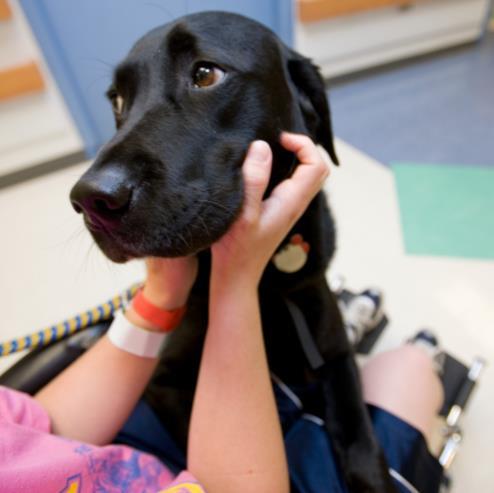



Our goal is to build a $5 million endowment to ensure that Nationwide Children’s Hospital always has Pet Therapy.
Canine Programs are not reimbursed by insurance or Medicaid. And since we cannot charge for the service, it is vulnerable to budget realities. Philanthropy is the only way to ensure that a loving, understanding dog will be present for children in the future.
Creating an endowment will ensure this vital program is secure in perpetuity.


A contribution from you would help build the foundation to ensure canine therapy is always available at Nationwide Children’s Hospital.



















































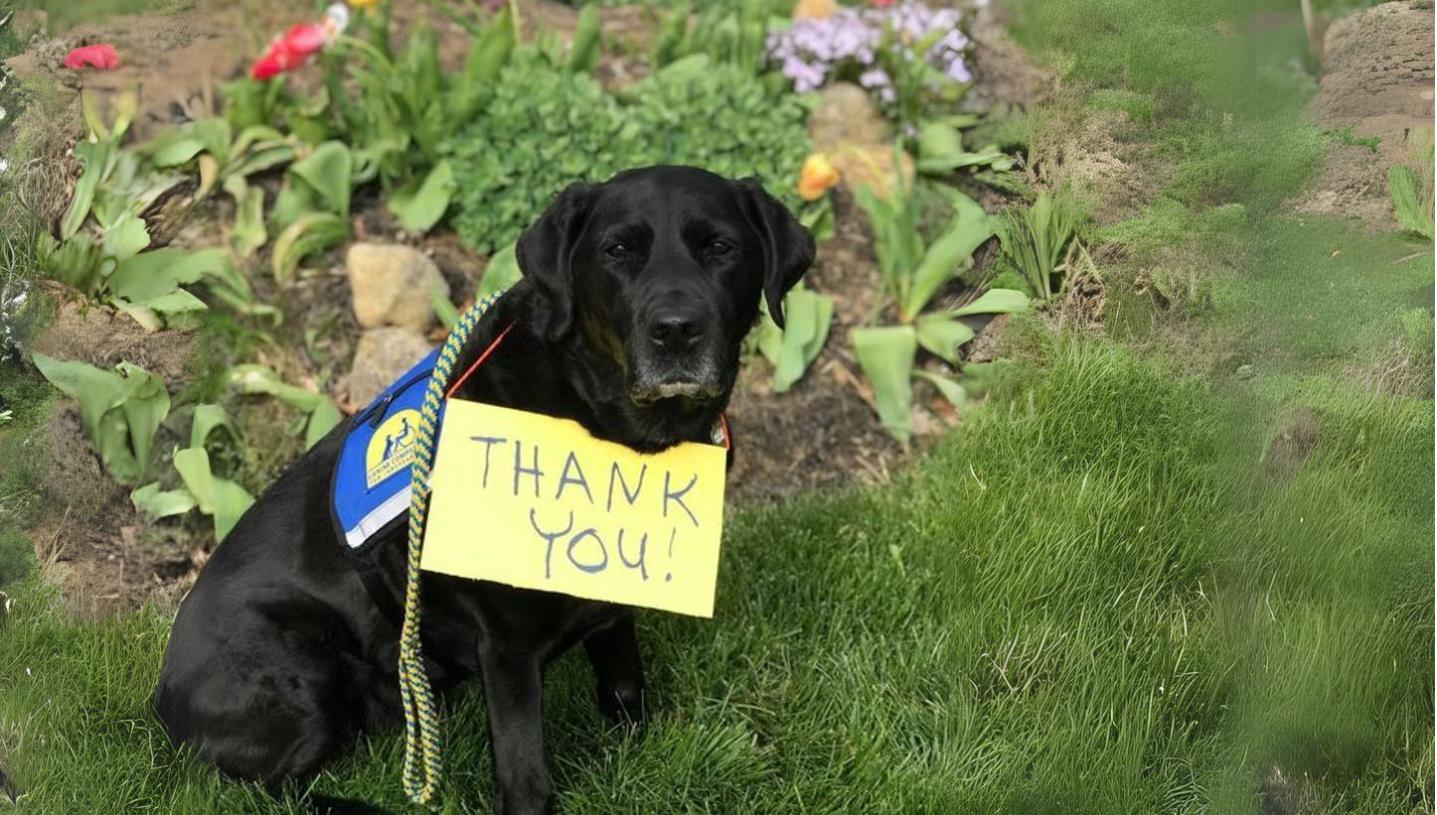
With your help, patients at Nationwide Children’s Hospital will always be able to experience the monumental healing powers of pet therapy.
Thank you for considering this proposal.


Nationwide Children’s Hospital Foundation
700 Children’s Drive Columbus, Ohio 43205
Nichole Ferris, Vice President of Engagement
(614) 355-5427
Nichole.Ferris@NationwideChildrens.org
